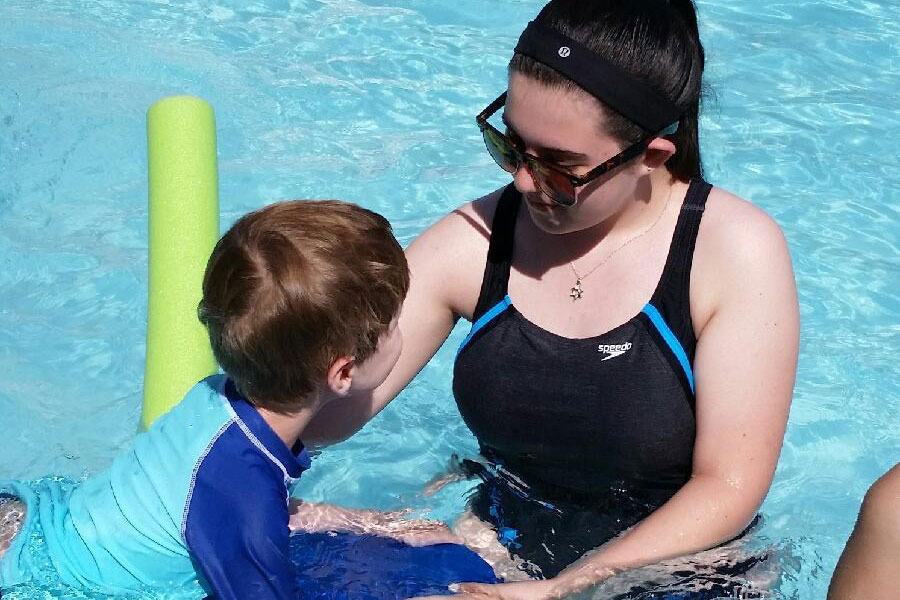Grasshoppers & Giants: Building Confidence Begins Here

Camp is naturally an environment that breeds confidence and encourages independence, and our staff seeks out these teachable moments in every nook of our daily routine. It’s a proud moment for all of us when we see campers take a risk, try something new, and challenge themselves to grow, especially when they find support and success on the other side.
This is why we all celebrated when one of our hanikhim overcame his nerves about entering the breikha(pool) this week. With the encouragement and support of our counselors and swim instructors, this camper ventured into the water for the first time, with a proud smile on his face and exuberant staff cheering him on.
Such growth originates in the individual and requires a shift in perspective. We see this phenomenon this week in parashat Shelakh Lekha in the contrast between Caleb’s report and that of the other spies sent into Israel for reconnaissance. Numbers 13:30-31: Caleb tells Moses and Israel ki yakhol nukhal, “we surely can” inhabit this land and fulfill our dream, even in the face of Israel’s negative retort: lo nuchal, they cried, “we surely cannot.” The tension of this moment is in the struggle between confidence and doubt, a struggle often restricted to our inner monologues that we observe here on the outside.
Many commentators asked how it could have been that Caleb and the others had such different reports of the same observation. The Torah, though, offers its own subtle explanation. Num. 13:33: “We were like grasshoppers in our own eyes, and so were we in their eyes” (based on the JPS translation). Most important in this verse is the word lakhen, translated in the JPS version as “and so,” but often used to indicate cause. Consider translating it thusly: “because we were like grasshoppers in our own eyes,therefore we were like grasshoppers in their eyes,” implying that the only obstacle to seeing ourselves as mighty, brave, and capable is our own self-perception. It’s not that we weresmall in the presence of giants; rather, we felt small in the presence of giants.
What made Caleb different was his unwillingness to give in to that inner voice of doubt. When Caleb looked at his companions, he saw potential; his companions in return only saw their flaws. This is one thing our campers have come to learn this week about haveirut (friendship): a good friend is one who pushes you to see yourself as mighty, helps you succeed, and supports you in taking risks.
Here’s to a full summer ahead (and many more) of building friendships, building confidence, and building this supportive community of Camp Ramah in greater Washington!